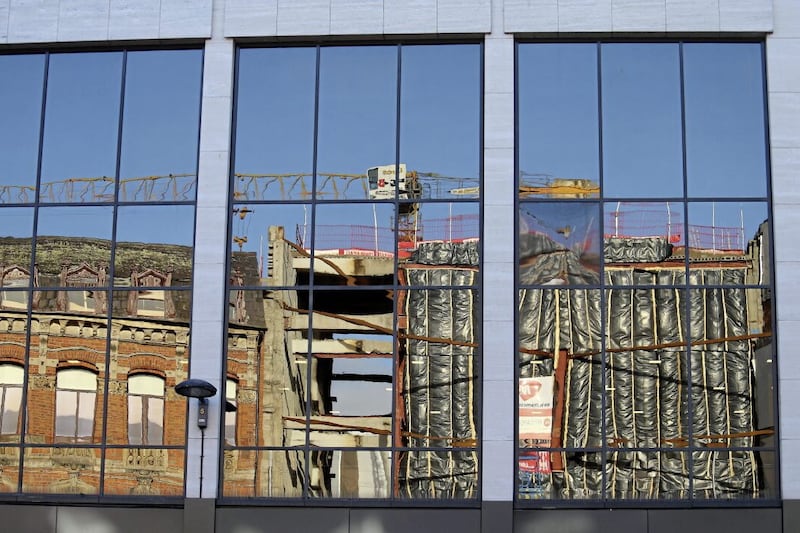THE Rics Northern Ireland conference in Belfast last week discussed the impact our profession has made, and continues to make, on issues that matter to society.
One of my favourite parts of being Rics president is the opportunity to meet members on their home turf and to hear their perspectives both on their own work and on what Rics means to them. It is also an opportunity to gather insights on the important roles surveyors play in their local communities.
These events are a chance for members to catch up, and it was great to answer questions that showed how much they care about ensuring Rics has a high-quality, member-focused culture. That is part of what we do, but it’s important to remember that we also regulate the surveying profession in the public interest.
According to the UN, the built environment produces 40 per cent of the world’s carbon emissions. The ways we build and run homes, offices and industry can have a huge effect on our planet’s future, placing the surveying profession, whether supporting planning, construction or building management, right at the heart of efforts to meet international emissions targets, and deliver Northern Ireland’s 2022 Climate Change Act.
This is why we heard from leading local experts on how to navigate the path towards net zero with a focus on renewable energy, retrofitting existing buildings and the use of the latest technology. We also explored challenges such as skills shortages.
There’s some great work locally, such as the Erne Campus of South West College. It won Rics Project of the Year, in large part due to its sustainability, including achieving around 90 percent savings in energy costs. This has been recognised by the UN as of one of just 26 Centres of Excellence for high-performing buildings.
Experts like those here are why we have been able to produce our new and world-leading Whole Life Carbon Assessment standards. These will provide more detailed advice to help measure carbon costs to manage environmental impact.
To produce such guidance, we need the varied perspectives but clear insights of our expert members. People like Ronan. He is a surveyor whose career has included colleges and castles, coast and countryside. He understands that sustainability is integral to our everyday work, and wants us to embed it more in our training. It is an idea that we’ll discuss further.
Environmental sustainability is not our only concern, of course. It’s also vital that our profession is sustainable into the future, with good people working at every level.
This is why Rics has committed itself very strongly to a profession that reflects wider society, welcoming talented people wherever we find them.
We have made some progress, though more is needed, and it was inspiring to see so many women from our sector in Northern Ireland represented at the conference.
They included Andrea. Her career has taken her from the private to the public sector. She now helps people get the care they need by delivering health service facilities. You may even have benefitted from her work!
As a quantity surveyor, she started in a technical role and would not have predicted how she now serves the public. She’s also a great example of the talent we can recruit when we look as widely as possible.
Nevertheless, all the surveyors I met in Belfast are representatives of a thriving profession that serves this region in ways many don’t even realise.
Whatever their background and role, Rics members in Northern Ireland are committed to planning, building and maintaining a great future for everyone.
:: Ann Gray is president of the Royal Institution of Chartered Surveyors (Rics), which promotes and enforces the highest professional qualifications and standards in the development and management of land, real estate, construction and infrastructure.








